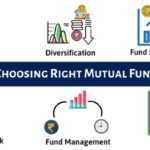Introduction
Overview of Career Development: Career development refers to the ongoing process of managing your work life, learning new skills, and achieving your career goals. It involves understanding your professional interests, improving your abilities, and strategically planning your career path.
Purpose of the Guide: This guide aims to provide professionals with a comprehensive roadmap to enhance their career development. Readers will learn about self-assessment, goal setting, skill development, networking, mentorship, and more.
Thesis Statement: Effective career development is a continuous and strategic process that requires self-awareness, planning, and consistent effort.
Self-Assessment and Goal Setting
Evaluating Current Skills and Experiences: Encourage readers to take a thorough inventory of their current skills, experiences, strengths, and weaknesses. Tools like SWOT analysis (Strengths, Weaknesses, Opportunities, Threats) can be helpful.
Setting SMART Goals: Explain the importance of setting career goals that are Specific, Measurable, Achievable, Relevant, and Time-bound. This ensures clarity and provides a concrete plan for career progression.
Creating a Career Plan: Provide a step-by-step process for developing a detailed career plan that includes short-term and long-term goals, actionable steps, and timelines.
Continuous Learning and Skill Development
Importance of Lifelong Learning: Emphasize that career development involves continuously acquiring new skills and knowledge to stay competitive in the job market.
Identifying Relevant Skills: Guide readers on how to identify which skills are crucial for their desired career advancement. This could involve industry research, job descriptions, and feedback from peers and mentors.
Learning Opportunities: Suggest various resources for skill development, such as online courses (Coursera, Udemy), workshops, seminars, professional certifications, and company training programs.
Building a Professional Network
Networking Strategies: Provide practical tips for building and maintaining a robust professional network. This includes attending industry events, joining professional organizations, and participating in online forums.
Leveraging Social Media: Discuss how to use platforms like LinkedIn to connect with industry professionals, share insights, and stay updated on industry trends.
Attending Industry Events: Explain the benefits of participating in conferences, meetups, and seminars to expand one’s professional network and stay informed about the latest industry developments.
Finding and Working with Mentors
Benefits of Mentorship: Highlight how mentors can provide valuable guidance, support, and opportunities for growth. Mentors can share their experiences, offer advice, and help navigate career challenges.
Finding the Right Mentor: Offer advice on how to identify and approach potential mentors. Look for individuals who have experience in your desired field, share similar values, and are willing to invest time in your development.
Maximizing the Mentor-Mentee Relationship: Share tips on how to make the most of the mentorship experience, such as setting clear expectations, being open to feedback, and regularly updating mentors on progress.
Enhancing Job Performance
Setting Performance Goals: Explain how to set and achieve performance goals at work. This includes understanding job expectations, setting personal benchmarks, and seeking regular feedback from supervisors.
Time Management and Productivity: Provide strategies for improving time management and productivity. Techniques such as the Pomodoro Technique, prioritizing tasks, and avoiding multitasking can be effective.
Seeking Feedback: Discuss the importance of seeking regular feedback and using it to improve job performance. Constructive feedback helps identify areas for improvement and reinforces strengths.
Personal Branding
Importance of a Personal Brand: Explain what a personal brand is and why it’s important. A personal brand is how you present yourself professionally and the value you bring to the table.
Building Your Brand: Provide steps for creating a strong personal brand. This includes developing a unique value proposition, creating a professional online presence, and consistently sharing your expertise and achievements.
Maintaining and Evolving Your Brand: Discuss the need to regularly update and refine your brand to stay relevant and reflect your growth.
Career Advancement Strategies
Identifying Opportunities for Advancement: Guide readers on how to spot and pursue career advancement opportunities within their current organization or industry.
Preparing for Promotions: Offer tips on how to position oneself for promotions, such as taking on additional responsibilities, showcasing achievements, and demonstrating leadership qualities.
Navigating Career Transitions: Discuss strategies for successfully changing careers or industries. This could involve additional education, gaining relevant experience, or leveraging transferable skills.
Work-Life Balance
Importance of Balance: Explain why maintaining a healthy work-life balance is crucial for long-term career success and personal well-being.
Strategies for Balance: Provide tips on managing work and personal life, setting boundaries, and prioritizing self-care. Techniques like scheduling downtime, delegating tasks, and practicing mindfulness can help.
Long-Term Benefits: Discuss the positive impact of a balanced lifestyle on overall career satisfaction, productivity, and health.
Conclusion
Recap of Key Points: Summarize the main points discussed in the guide, reinforcing the importance of each aspect of career development.
Encouragement to Take Action: Motivate readers to implement the strategies outlined in the post to enhance their career development.
Final Thoughts: Reinforce the idea that career development is an ongoing process that requires dedication, strategic planning, and continuous effort.














